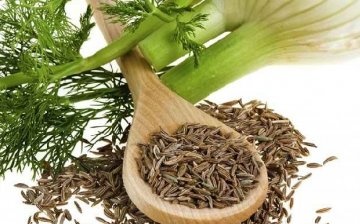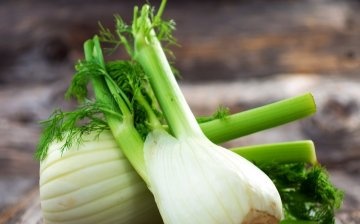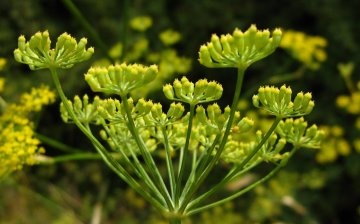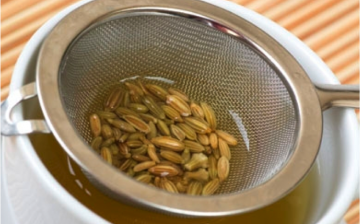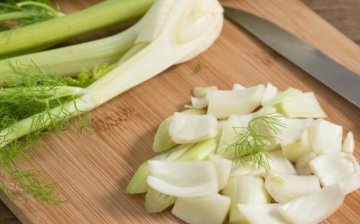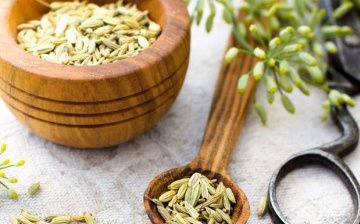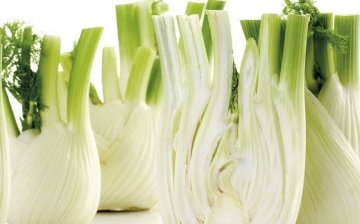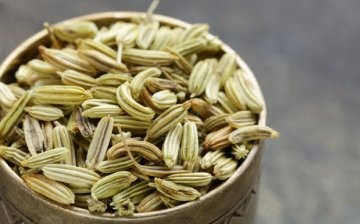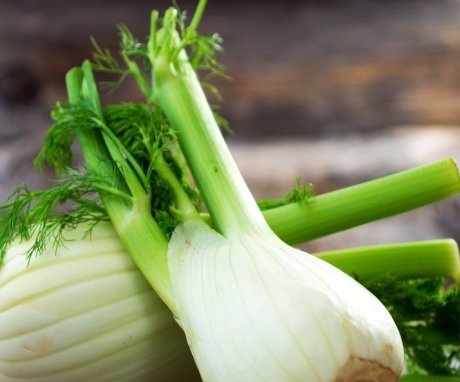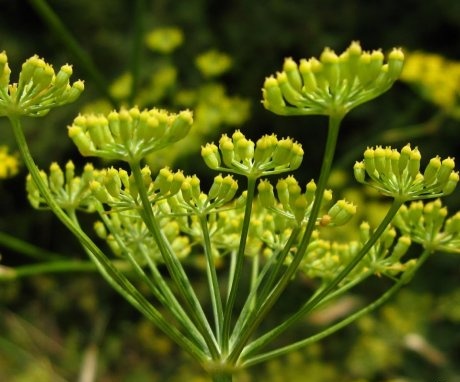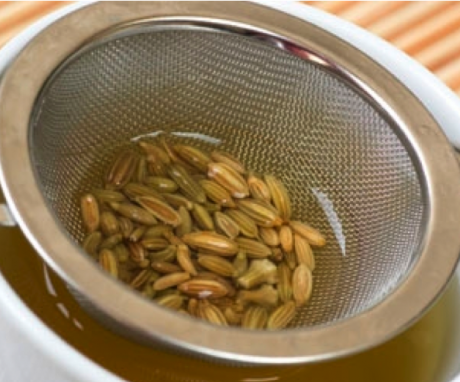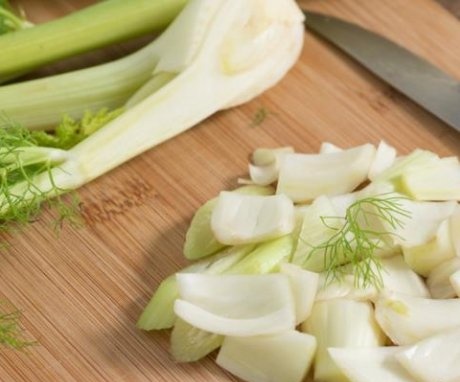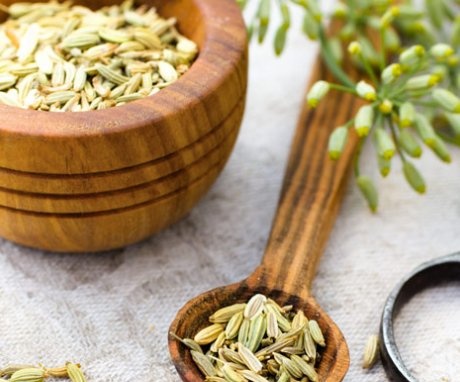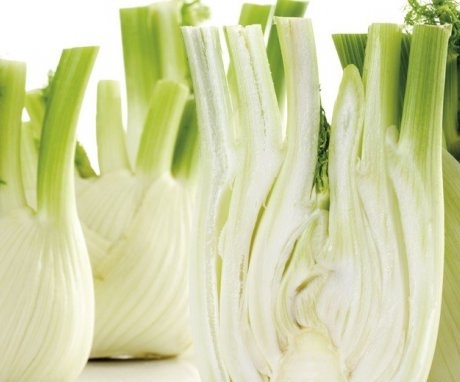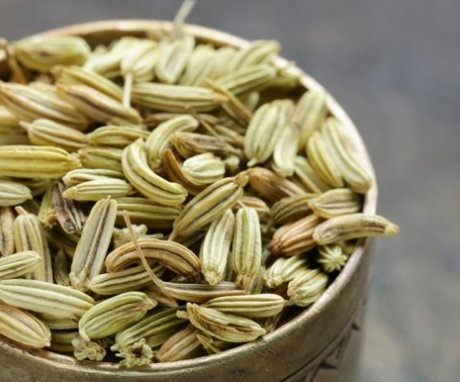What properties does fennel have and how to use it?
Fennel is a plant with beneficial properties and trace elements. This miraculous herb is recommended for use in cosmetology, and in cooking, and in medicine. It especially helps to fight colic in newborns. To use it correctly, it is recommended to know how to prepare it. The main thing is, before using it, it is worth identifying whether there are any contraindications and whether the plant can be taken.
Content:
- Composition and beneficial properties of fennel
- The use of fennel in medicine
- How to make and take fennel tea
- The use of fennel in cooking
- To whom and when is fennel contraindicated?
- Can It Cause Side Effects
- How to choose the right fennel?
- Methods and rules for storing fennel
Composition and beneficial properties of fennel
Often many people believe that fennel is dill... This judgment is not true, these plants are representatives of completely different families. Unlike dill, fennel has a distinct aroma reminiscent of tarragon. If you pull out both shrubs from the ground, then the fennel will have a more powerful and larger root than dill.
The plant also differs in taste; fennel tastes sweeter than dill. The seeds of the first are somewhat oblong. Fennel comes in vegetable or leafy varieties. Thanks to this, all parts of the shrub can be used for various purposes, both for consumption and as a medicine.
Fennel is a shrub of a perennial type, which tends to reach a height of 2 m.While dill is an annual plant, mainly growing by 150 cm. The composition of the spicy culture - fennel includes flavonoids, macro- and microelements and glycosides, as well as there are vitamins A, C and group B.
Due to the presence of essential oils in the composition, the shrub has a specific spicy taste and aroma.
The seeds of the culture contain carbohydrates, fats, proteins, fiber and water. Due to the small amount of calories contained in the plant - only 31 per 100 g. product, the bush belongs to diet food.
If we compare what is better for medicinal purposes - seeds or a plant as a whole, then shrub seedlings are ideal for preparing medicinal potions. The following beneficial properties are distinguished, which are revealed after the use of a spicy culture in food:
- Introduced into the body in the correct doses, the product helps to relieve the newborn from colic, increased gas production, and also to eliminate problems in the digestive organs. It is used as a cough remedy.
- Medicines made on the basis of fennel are actively fighting gallstone and urolithiasis.
- It has a rejuvenating effect.
- It has a positive effect on the genitals of both men and women, favorably affects the reproductive system of a woman.
- Has the ability to eliminate the manifestation of fungal infection and dandruff on the scalp.
- Used effectively as aromatherapy. Allowing, when inhaling, the air filled with particles of spicy culture, to relax and unwind.
- Has the ability to eliminate sleep problems, gradually gently lowers blood pressure.
- Prevents the formation of mutation cells in cancer.
- For people trying to lose weight, fennel helps to eliminate hunger, eliminate anxiety, relieve irritation and normalize the nervous system.
In addition, the plant contains a component such as atenol, which has an anti-inflammatory function. Therefore, fennel is used in various fields not only for preparing dishes and saturating them with an aromatic spicy taste, but also for treating patients.
The use of fennel in medicine
The medicinal properties of fennel have been known since ancient times. The writings of Hippocrates testify to its positive qualities; the doctor insisted on its use as a diuretic. Other prominent doctors of the time recommended using it for the treatment of diseases of the organs of vision. Also, fennel was used as the best discharge of stagnant sputum in diseases of the upper respiratory tract.
Pharmaceutical companies of modern medicine obtain drugs from seeds and fruits, such as "Anetin". This drug has an antispasmodic effect on the smooth muscles of the intestine, as well as on the coronary blood capillaries.
Its use is prescribed for spastic colitis, chronic course. Its effect allows you to eliminate the problem and normalize the general condition of a person. Also, the effect of a medication based on fennel has a beneficial effect on the elimination of long-term coronary insufficiency and the elimination of abdominal spasms.
To neutralize excessive nervous excitability, it is recommended to use real brooms made of fennel stalks in the bath - you should steam with such a broom in case of neurasthenia, sleep problems.
The plant helps with acne, furunculosis, skin diseases and inflammatory diseases acquired due to infection with infectious pathogenic bacteria. For the treatment of the above problems, it is recommended to prepare infusions from the leaves and fruits of the spicy culture as an external application.
For newborns, to eliminate flatulence, dill water is made from fennel seeds. Additionally, a licorice elixir is made on the basis of essential oil, which can soften the cough reflex.
How to make and take fennel tea?
To use a plant correctly, you need to know how to prepare it. Seeds should be harvested as they ripen - fennel seedlings do not have the ability to approach readiness evenly. Therefore, harvesting should be done selectively. During collection, you need to be guided by umbrellas that have acquired a gray tint with the presence of brown seeds.
If you want to collect the grass, then cut it off at least 25 cm above ground level. After that, the grass is hung in bunches in a well-ventilated dark room or laid out on a surface and dried thoroughly. When completely dry, the resulting dry tops are pounded to a uniform powder consistency. Store the result in a glass jar or other container that closes well. Duration of storage - should not exceed 3 years.
If sleep problems are detected or it is recommended to calm the nervous system, then fennel tea should be drunk before going to bed for 30 minutes.
In the form of tea, fennel is used to enhance the body's defenses. For making tea, you can use both previously prepared powder and dry foliage. For 150 ml. boiling water should be taken 1 tbsp. product. Let it brew well and then drink.
Tea should be consumed immediately after preparation, once a day. The duration of the course of application is 30 days. Already after a short period of use, the patient will feel an influx of strength and the establishment of general well-being. If necessary or the patient wishes, the course can be repeated after 1 month.
The use of fennel in cooking
Fennel is used for the preparation of culinary delights all over the world:
- So leafy plates in European cuisines are used as an additive to salads, and are also introduced into broth during the preparation of first courses. Second courses are distinguished by their original taste. A number of different sauces and mayonnaises have been developed on the basis of fennel greens.
- Especially popular is the making of dishes where fennel leafy plates are present, complementing salmon, mackerel, perch, sardine or other representatives of the ocean. When a plant is combined with vegetables, the culinary delight acquires not only originality, but also medicinal properties.
- When making dishes with fatty meats, such as pork, the introduction of the spice adds notes of sweet taste. To do this, the meat is stewed in a marinade interspersed with a spicy culture, and whole leaf plates can also be put under whole pieces of fish, meat, chicken. This recipe is used in most cases for baking in the oven.
- In Mediterranean cuisine, frozen or blanched plant stems are actively used as a side dish, as a second course.
- The upper part of the fennel umbrella is used in home cooking, as well as canning as an additive for pickling tomatoes or cucumbers, eggplants, zucchini, squash.
- Green fennel seeds are recommended for seasoning fish dishes such as Italian pork, canned herring. They can also be used when baking baked goods. Pre-ground plant seeds are needed as a seasoning when roasting meat or chicken on a skewer over an open fire.
- In addition, the spicy shrub is used to make various desserts and sweets.
To whom and when is fennel contraindicated?
Many people believe that fennel has no contraindications. But along with the possession of a number of useful qualities, the plant also has contraindications. First of all, a spicy culture is prohibited for people who have an individual intolerance to the plant itself or the components that the culture is endowed with.
If the plant is consumed by a patient with hypersensitivity, an allergic reaction may develop. The latter can be expressed in any form - a runny nose, redness of the skin, itching or other severity. Therefore, it is necessary to undergo testing to identify a reaction before using prepared spice-based products.
Do not use fennel infusions or teas for patients with epilepsy.
During the use of infusions or decoctions with the preparation of fennel, it is recommended to observe the optimal dosage. Overdose moments often occur. Signs of severe headache, bouts of nausea and dizziness may appear. The optimal rate for the introduction of a medicinal drink into the body for each patient is set individually.
If too heavily loaded with fennel-based products, the spice can trigger digestive problems, such as an upset stomach or allergic reaction. Therefore, it is very important to start using the medicinal herb in small doses. In case of any identification of a negative effect, it is worth stopping the intake completely and consulting a doctor.
Can it cause side effects?
Incorrect intake or excessive leaning on a therapeutic drink can provoke side effects.The following situations are distinguished, which leads to the use of tea, infusion or decoction from a spicy culture:
- Acquisition of sunburn - frequent consumption of tea stimulates the skin, revealing sensitivity to the rays of the sun, which can ultimately lead to burns.
- Allergies - in patients who have a negative reaction to celery or carrots, they are susceptible to developing a reaction to fennel. Signs of allergies: dizziness, swelling of the face and larynx, pain when swallowing.
- When carrying a child, it is possible to provoke the appearance of menstruation, which is abnormal during such a period. Drinking the drink frequently can stimulate placental rejection, leading to miscarriage.
- Disorders in the functioning of the endocrine system - the seeds contain estrogens, which are a hormone of plant origin. The latter lead to processes that disrupt the operation of internal systems.
- Negatively affects newborns - some mothers introduce fennel tea to babies from the first days. An irregular dosage for babies negatively affects their condition: neurological diseases or other problems associated with the baby's psyche appear.
Therefore, it is possible to use medicinal herb as active additives only after the recommendations of the attending doctor and according to a specially prescribed scheme.
How to choose the right fennel?
When choosing a medicinal plant, it is worth giving preference to green stems with a bright saturated color. They should be firm, strong and tight. If a soft plant with sluggish stems is offered for sale, then you should not purchase this product.
If, after purchase, the greens of the plant will not be used on the same day, then it can be stored in the refrigerator only for 3-5 days, in the compartment for vegetables and fruits. If the acquisition of a root system is required, then the rhizomes should be represented by firm, elastic roots of a pale green color. If you sniff the plant, then the rhizomes will deplete the delicate anise aroma.
Do not buy bulbs that are cracked or damaged, and do not buy a product with very loose edges.
When buying, the best option is heavy bulbs with a dense structure with attached stems or minor residues on the tubers of green leaf plates. So the buyer will be able to see how long ago the shrub was removed from the ground and how long it can still be stored.
Methods and rules for storing fennel
Seeds and rhizomes are used as storage. When the fruits are fully ripe, they acquire a brown tint on the bush. Umbrellas with the resulting fruits are carefully cut and dried.
After that, the resulting crop is determined in a closed glass container or another type, but so that it closes tightly. This is necessary so that moisture does not get inside, and the seedlings do not lose their useful qualities.
Harvesting of rhizomes of a spicy plant is carried out only in the second year of growing a shrub.
The procedure is carried out in early spring or late autumn. The event is carried out at the moment when the stem at the base grows to 1 cm in diameter. The resulting greens are dried under a canopy or in a dark room. When exposed to sunlight, leaf plates lose their useful qualities.
Thus, fennel is a shrub-type plant. It is used as a medicinal substance for many diseases, and also enhances the taste of both first and second courses. Contraindications should be considered before use. With their presence and the use of a fennel drink, side effects can be provoked. Before using, choose the right product and know how to store herbs, seeds and green rhizomes.
More information can be found in the video:



